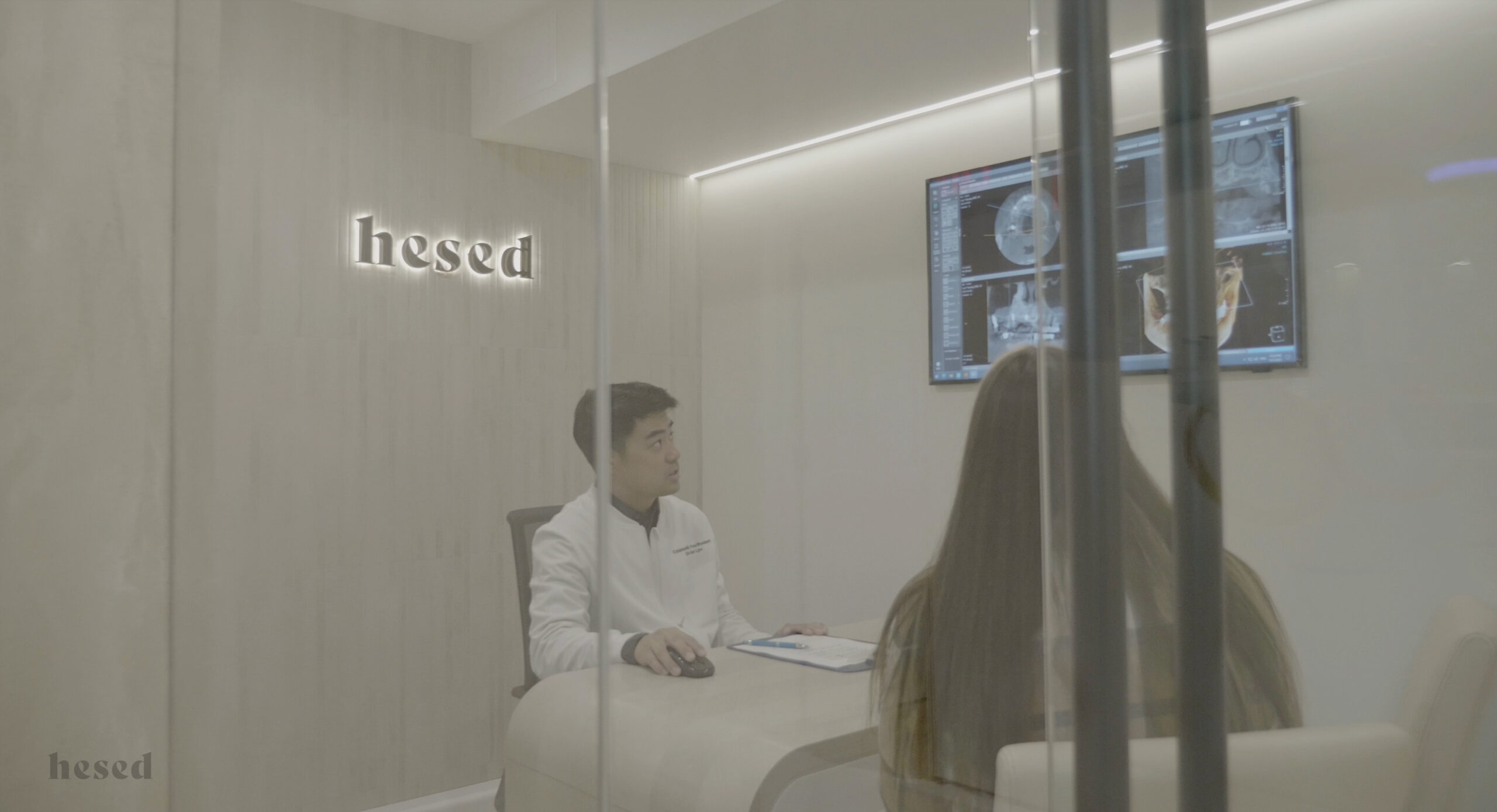Worn-down teeth can affect the aesthetics of patients. Excessively worn-down teeth can affect the internal tooth structure (e.g., dentin, enamel, etc.), eventually decreasing the tooth’s strength. Many patients inquire: How to fix worn-down teeth? There are multiple ways to do so. This article will discuss various methods to treat worn-down teeth.

Sometimes, the enamel (the outer layer that protects your teeth) wears off because of chemical or mechanical forces exerted on the tooth. This is common in patients who frequently consume fizzy drinks, etc. Erosion results in tooth weakness, increasing their susceptibility to discoloration, sensitivity, and tooth decay.
The process is slow. However, irreversible jawbone destruction is possible if the process is left unresolved.
A tooth abrasion occurs when your teeth deteriorate due to an external physical or mechanical activity. The most common cause of abrasion is aggressive tooth brushing. The dentist needs to determine the cause of worn-out teeth.
Dental attrition results in worn-down teeth, and the dental structure deteriorates due to tooth-to-tooth contact. Over prolonged periods, if dental attrition is left untreated, it can wear away the enamel, thereby exposing the dentin of the tooth. This can cause tooth sensitivity and decay. Moreover, one of the significant causes of attrition is tooth grinding (also known as bruxism). People tend to do it either while awake or subconsciously while sleeping.
Abfraction is the wearing away of the tooth structure at the junction of the tooth and the gum this type of defect results in worn-down teeth with a V-shaped/wedge shape. Abfraction often results from excessive force and stress on the tooth roots. Roots exposed due to gum recession and gum disease increase your risk of developing abfractions.
Many patients complain of feeling hot and cold while consuming beverages. Moreover, changes in tooth color and shape due to decay are also prevalent. Jaw pain and headaches are among the symptoms of teeth grinding; in extreme cases, the patient might develop an abscess. Dental issues can be prevented and managed effectively by regular dental care.
An expert dentist in NJ can treat and restore worn-down teeth through multiple methods. :
The priority should always be removing the cause. If a patient suffers from worn-out teeth due to bruxism, a night guard can help taper off the habit. Patients also require counseling if they are used to doing it under stress. The forces we put on our teeth in bruxism far exceed the strength of the best dental materials. Such a patient will quickly break any dental restoration.
Tooth bonding refers to the application of a tooth-colored composite resin substance to teeth, which allows the dentist to modify its size, shape, or color. The composite resin used for filling cavities and tooth bonding is the same. It can cover imperfections such as cracks in the enamel or discolorations. It can also reshape a tooth that is chipped, misshapen, or worn down due to the normal wear and tear of aging.
It usually does not require anesthesia and can be done in one office visit. It is a very conservative treatment that protects the remaining healthy tooth structure.
Porcelain veneers are more durable and stain-resistant for correcting worn-down teeth and other imperfections. Porcelain veneers are like thin shells which cover the front of your teeth. Veneers mask their flaws and lengthen and reshape your teeth. This treatment usually takes two visits to the dental clinic.
You can also opt for composite veneers, lumineers, or no-prep veneers in addition to porcelain veneers. Your dentist is the best judge to help you decide which pair of veneers is most suitable for you.
Tooth reshaping is the most conservative of all options. It requires no anesthesia. Worn-down teeth that have become flat or chipped are reshaped to create the natural curves of more youthful teeth.
It is essential to note that whatever process wore and broke the teeth down in the first place will also work to destroy the newly reconstructed teeth. Therefore, the elimination of the cause is essential.
Dental crowns are a therapeutic option for highly advanced, worn-down teeth. In essence, the more you have lost from your teeth, the higher the chance you will need a dental crown. A crown is an artificial tooth-colored cap that circles the tooth. Therefore, a prosthetic crown restores and improves the tooth’s look and function.
This procedure will take more than one appointment in our office. After the tooth is prepared, an impression is taken. Later, this impression is sent to the lab for manufacturing. In the meantime (depending on the severity), your dentist might provide a temporary crown to help you perform regular oral functions.
In addition, they prevent any further tooth wear, which can affect the fitting of the crown during manufacture. The initial cost is higher. Crowns last longer and are far more durable than other replacement options when tooth wear is extreme.
The severity of bruxism will determine how deep the gum tissue gets harmed. The area of the gums that have been affected will have to be treated to prevent further damage to the teeth.

To sum it up, whether tooth wear is due to erosion, abrasion, attrition, or abfraction, there is a relevant treatment for it. Your dentist might recommend tooth bonding, veneers, or crowns depending on the extent of tooth wear. Irrespective of the type of wear, removal of the cause plays a significant role in tooth revival.
At Hesed Dental, the dental experts in NJ provide top-notch dental care services for your worn-down teeth. We don’t just offer the installation of veneers; we also have our in-house dental lab, where we manufacture your veneers per your choice and requirements.
Do you have a toothache or think you may need a root canal? Call or find us online for a convenient appointment at Hesed Dental Clinic. Our skilled, professional staff is ready to gently and efficiently treat your dental issues. We are located at 543 Gorge Road, Cliffside Park, NJ 07010. We look forward to helping you restore optimal dental health and a natural, beautiful, pain-free smile.

Hesed Dental 543 Gorge Road Cliffside Park, NJ 07010
201 941 8877